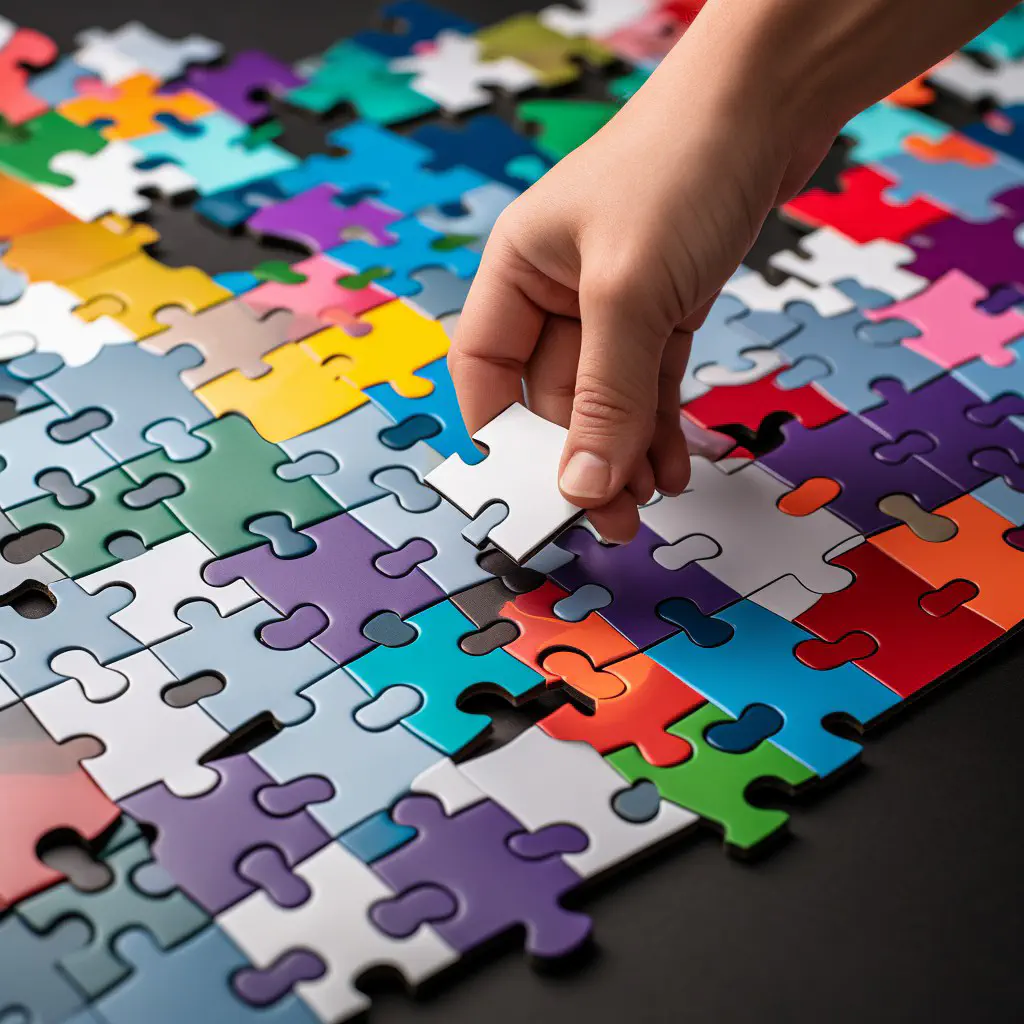
1. Brain Teasers and Puzzles
One of the most effective ways to challenge your brain and improve cognitive function is through brain teasers and puzzles. These activities help stimulate different areas of the brain and create new pathways that can improve problem-solving skills.
Some examples of brain teasers and puzzles you can try include:
- Crossword puzzles
- Sudoku
- Rubik’s Cube
- Jigsaw puzzles
- Logic puzzles
- Memory games
- Chess and other board games
“Brain workouts like Sudoku, crossword puzzles and other mind-posers can help delay the onset of dementia”, says Dr. Zaldy S. Tan, an associate professor of geriatric medicine at the University of California, Los Angeles.
So if you’re looking to give your brain a workout, try incorporating brain teasers and puzzles into your daily routine. It can be a fun and challenging way to improve your cognitive skills and keep your brain healthy.
2. Regular Exercise
Regular exercise is not just good for your physical health; it can also benefit your cognitive function. Here are some key points to consider:
- Exercise increases blood flow to the brain, providing vital nutrients and oxygen that help support brain health.
- It also stimulates the production of growth factors, which promote the growth of new brain cells and connections between existing ones.
- Research suggests that exercise can improve memory and reasoning skills, as well as reduce the risk of cognitive decline in older adults.
- Aim for at least 30 minutes of moderate-intensity exercise most days of the week. This could include activities like brisk walking, cycling, swimming, or dancing.
- If you struggle to find time for structured exercise, try incorporating more physical activity into your daily routine. For example, take the stairs instead of the elevator, or walk or bike to work if possible.
- Remember to check with your doctor before starting a new exercise program, especially if you have any underlying health conditions.
Incorporating regular exercise into your routine is a great way to support your overall health and well-being, both physically and mentally.
3. Mental Stimulation
Keeping your brain active and engaged is essential for maintaining cognitive abilities. Here are some ways to promote mental stimulation:
Reading
Reading is a great way to keep your mind sharp. It improves vocabulary, reduces stress, and enhances cognitive abilities. Read books, articles, and blogs on topics that interest you to keep your mind engaged.
Learning a New Language
Learning a new language is a great way to stimulate the brain and improve cognitive function. It increases memory and concentration, enhances problem-solving skills, and improves decision-making abilities.
Taking on a New Hobby
Taking on a new hobby can enhance cognitive abilities. For example, playing musical instruments, painting, or learning to cook new recipes can help improve memory, creativity, and problem-solving capabilities.
Playing Strategy Games
Playing strategy games such as chess or checkers helps develop critical thinking and problem-solving skills. It provides a fun and challenging way to increase cognitive function and keep the mind active.
In conclusion, continuous mental stimulation is vital to maintain cognitive skills. Incorporating various activities, such as reading, learning new skills, playing games, or taking on new hobbies, can improve cognitive abilities, increase creativity and problem-solving skills.
4. Mindfulness Practice
Practicing mindfulness can have a positive impact on your mental and physical health. It involves focusing your attention on the present moment and accepting it without judgment. Here are some ways to incorporate mindfulness practice into your daily routine:
-
Meditation: Set aside a few minutes each day to practice meditation. Find a quiet and comfortable place to sit, close your eyes, and focus on your breath. When your mind begins to wander, gently bring your attention back to your breath.
-
Deep breathing: Take a few deep breaths throughout the day, focusing on the sensation of the air filling your lungs and then exhaling.
-
Body scan: Sit or lie down and bring your attention to each part of your body, starting at your toes and working your way up to your head. Notice any sensations or feelings without judgment.
-
Mindful walking: Take a walk and focus on the experience of walking. Pay attention to the sensation of your feet touching the ground, the movement of your body, and the sights and sounds around you.
By incorporating mindfulness practices into your daily routine, you can reduce stress, improve focus and attention, and cultivate a sense of peace and well-being.
5. Social Interaction
Regular social interaction can have a positive impact on cognitive function, particularly in older adults. By engaging with others, you stimulate the brain and keep it active. Here are some ideas for how to incorporate social interaction into your routine:
Join a Club or Group
Find a local club or group that shares your interests, whether it’s a book club, gardening club, or sports team. Joining a group allows you to meet new people and engage in activities that can help keep your brain active.
“Joining a social group of any kind can have a big impact on your cognitive health,” says Lisa F. Berkman, PhD, director of the Harvard Center for Population and Development Studies.
Volunteer
Volunteering is a great way to give back to your community while also engaging in social interaction. Look for opportunities to volunteer at a local hospital, school, or non-profit organization.
Stay Connected with Friends and Family
Make an effort to stay in touch with friends and family, whether it’s through phone calls, video chats, or in-person visits. Regular social interaction with loved ones can help reduce feelings of loneliness and improve overall cognitive function.
Take a Class or Attend a Workshop
Learning new skills and attending workshops or classes can also be a great way to engage with others. Look for classes at your local community center or college that interest you, such as a cooking class or language course.
By incorporating social interaction into your routine, you can improve cognitive function and overall well-being. Don’t hesitate to try new activities or connect with new people - it can be a fun and fulfilling way to keep your brain healthy.


